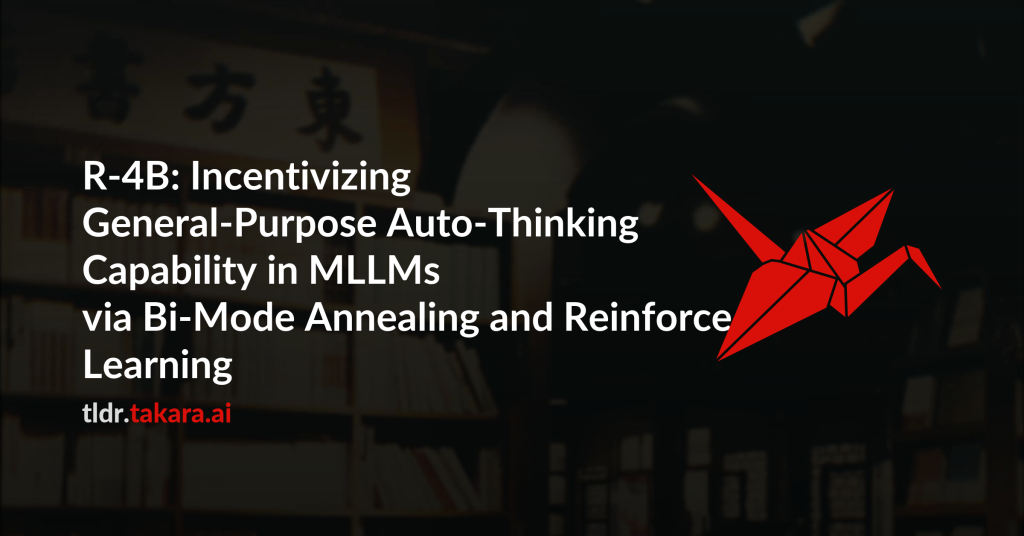Multimodal Large Language Models (MLLMs) equipped with step-by-step thinking
capabilities have demonstrated remarkable performance on complex reasoning
problems. However, this thinking process is redundant for simple problems
solvable without complex reasoning. To address this inefficiency, we propose
R-4B, an auto-thinking MLLM, which can adaptively decide when to think based on
problem complexity. The central idea of R-4B is to empower the model with both
thinking and non-thinking capabilities using bi-mode annealing, and apply
Bi-mode Policy Optimization~(BPO) to improve the model’s accuracy in
determining whether to activate the thinking process. Specifically, we first
train the model on a carefully curated dataset spanning various topics, which
contains samples from both thinking and non-thinking modes. Then it undergoes a
second phase of training under an improved GRPO framework, where the policy
model is forced to generate responses from both modes for each input query.
Experimental results show that R-4B achieves state-of-the-art performance
across 25 challenging benchmarks. It outperforms Qwen2.5-VL-7B in most tasks
and achieves performance comparable to larger models such as
Kimi-VL-A3B-Thinking-2506 (16B) on reasoning-intensive benchmarks with lower
computational cost.

